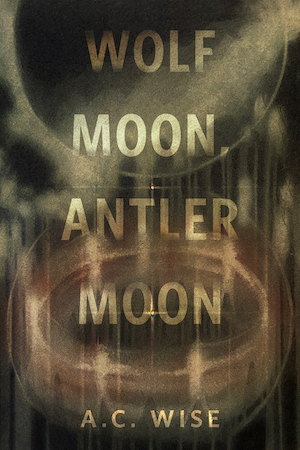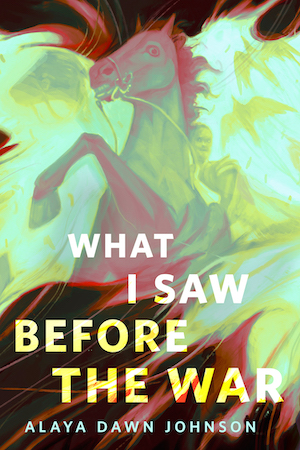“We should warn you that over the next 6 minutes we’ll hear Terry Pratchett talk of this dark subject the way he writes: with gallows humor and the occasional profanity.”
Thus did NPR’s Steve Inskeep introduce his August 11 interview with Sir Terry Pratchett on the subject of legalized assisted suicide, an issue in which Pratchett has become heavily invested following the “embuggerance,” as his 2007 Alzheimer’s diagnosis shall forever be known. I’m pretty sure that’s the first time I’ve ever heard a warning for “gallows humor” used as an introduction to anything on Morning Edition, or anywhere else for that matter. To Pratchett’s admirers, that humor is one of the man’s great qualities, along with his beautifully transparent prose and usefully cynical, yet surprisingly optimistic worldview.
Pratchett’s oeuvre extends well beyond the Discworld, but I must somewhat shamefacedly confess that the Discworld books (and the Neil Gaiman collaboration Good Omens) are the ones with which I’m most familiar. In this respect, I suspect I’m not in a minority of Pratchett fans. Of course, the Discworld books alone are no small thing on which to build a reputation and a dedicated fan base. What began as a series of jokey fantasy-genre send-ups about a bumbling wizard, a tourist, and a homicidal clothing trunk has grown into a fully-realized funhouse mirror version of our own world, complete with a postal service, a newspaper, drug problems, and racial and religious strife. Which isn’t to say that the fun has gone out of them, at least not for me. The jokes haven’t gone away; they’ve become subtler instruments—laser scalpels instead of great heavy axes.
True, the latest Discworld novel, Snuff, is probably one of the darkest, encompassing as it does the lethal human prejudice against goblins and the continuing struggle of reluctant hero and born policeman Sam Vimes (who still chafes against the title and the accoutrements of His Grace, His Excellency, The Duke of Ankh; Commander Sir Samuel Vimes) against the devils of his nature. This is a novel where one clear-eyed character says, “I tell you, commander, it’s true that some of the most terrible things in the world are done by people who think, genuinely think, that they’re doing it for the best, especially if there is some god involved.”—a Pratchett axiom if there ever was one.
It could all be deeply depressing if it weren’t for the humor keeping it afloat. There’s the Jane Austen joke, and the obsession of Vimes’s son with all manner and making of animal excrement. There’s a boat named the “Wonderful Fanny” (which is even funnier and more rude if you’re British), and all of the deadpan satire1 that Pratchett’s fans have come to love. And here’s the thing about Pratchett’s satire: no matter how stupid, foolish, snobbish, or shortsighted the people he’s sending up may be, he never entirely loses his empathy for them. The greatest mistake a satirist can make is to be contemptuous, and Pratchett knows better than that. Very few people in his world are completely bad or completely irredeemable, and those few that are generally have a number of springs unfixably loose in their clockworks.
You could argue that some of Pratchett’s storylines have slipped into a kind of predictability in the last several years—in the Witch books, for instance, a seasoned reader can guess that some kind of fairy-tale or fantasy trope will get twisted on its ear, and that Granny Weatherwax will end up pulling the fat out of the fire with some kind of highly dangerous witchery while Nanny Ogg keeps things grounded with her decidedly earthy outlook on life. A Watch book is guaranteed to be a police procedural involving some kind of corruption in high places, the eventual exposure of which Vimes may or may not have been quietly maneuvered into by the über-Machiavellian Lord Vetinari. A Death novel almost invariably hinges on some key component of the universe: Time, mortality, the human capacity for fantasy.
But the familiarity of the plots is part of the point, considering that the Discworld books themselves are also about the classic narratives that we tell ourselves, that we use to make sense of the world. The familiar plots are the necessary frames that contain the trenchant observations on human nature, the gently head-shaking bemusement at the universe and the silly things people do in it.
Most Discworld fans have favorite “arcs”; mine are the Watch and the Death books. Throughout the Watch books—Guards! Guards!, Men at Arms, Jingo, The Fifth Elephant, Night Watch, Thud!, and now Snuff—we’ve followed the evolution of Sam Vimes, the copper’s copper, and one of my favorite fictional heroes. He’s intelligent and dryly funny, a classic “only sane man,” and a devoted family man, but what I find most compelling about him are his ferociously dogged attempts to bring justice to the world, despite the best efforts of his fellow man (and dwarf, and troll, and other) and his own darker temptations to thwart him.
The Death books—Mort, Reaper Man, Soul Music, Hogfather, The Thief of Time—deal with something at once much bigger and much more basic: the source code of the universe, as it were. Such abstractions are made accessible through the Disc’s version of Death, the seven-foot-tall skeleton who has perhaps absorbed a bit more humanity than he lets on, and his granddaughter Susan Sto Helit, who acts as the sensible, hard-nosed bridge between ordinary people and the metaphysical high castle of anthropormorphic personifications—a perspective from which Vimes’s precious justice is clearly seen for what it is in this conversation between Susan and Death in Hogfather:
“All right,” said Susan, “I’m not stupid. You’re saying humans need … fantasies to make life bearable.”
NO. HUMANS NEED FANTASY TO BE HUMAN. TO BE THE PLACE WHERE THE FALLING ANGEL MEETS THE RISING APE.
“Tooth fairies? Hogfathers?”
YES. AS PRACTICE. YOU HAVE TO START OUT LEARNING TO BELIEVE THE LITTLE LIES.
“So we can believe the big ones?”
YES. JUSTICE. DUTY. MERCY. THAT SORT OF THING.
“They’re not the same at all!”
REALLY? THEN TAKE THE UNIVERSE AND GRIND IT DOWN TO THE FINEST POWDER AND SIEVE IT THROUGH THE FINEST SIEVE AND THEN SHOW ME ONE ATOM OF JUSTICE, ONE MOLECULE OF MERCY. AND YET YOU ACT, LIKE THERE WAS SOME SORT OF RIGHTNESS IN THE UNIVERSE BY WHICH IT MAY BE JUDGED:
“Yes. But people have got to believe that or what’s the point?”
MY POINT EXACTLY.
Some might find the idea of a mechanistic universe made bearable only through human fantasy to be unbearably bleak. But somehow, Pratchett leaves the reader not with despair, but with hope and indeed a kind of renewed faith in humanity—the realization that despite our species’ predilection for stupidity and cruelty, there is something sublime and valuable about our existence. After all, Death’s worst enemies are the Auditors of Reality, life-hating entities of such pure, hyper-rational order that they can only barely be considered entities at all. In theory, Death isn’t supposed to take sides, but invariably, he comes down on the side of the confusing, untidy, occasionally well-intentioned people who make the world such an interesting and troubled place to live in.
It’s this wryly humanistic quality that makes Pratchett’s books special, and why I’ve admired his work so much and for such a long time. When he announced his diagnosis, he observed that there was no doubt time for a few more books yet—and we may all hope that there is still time yet for more.









